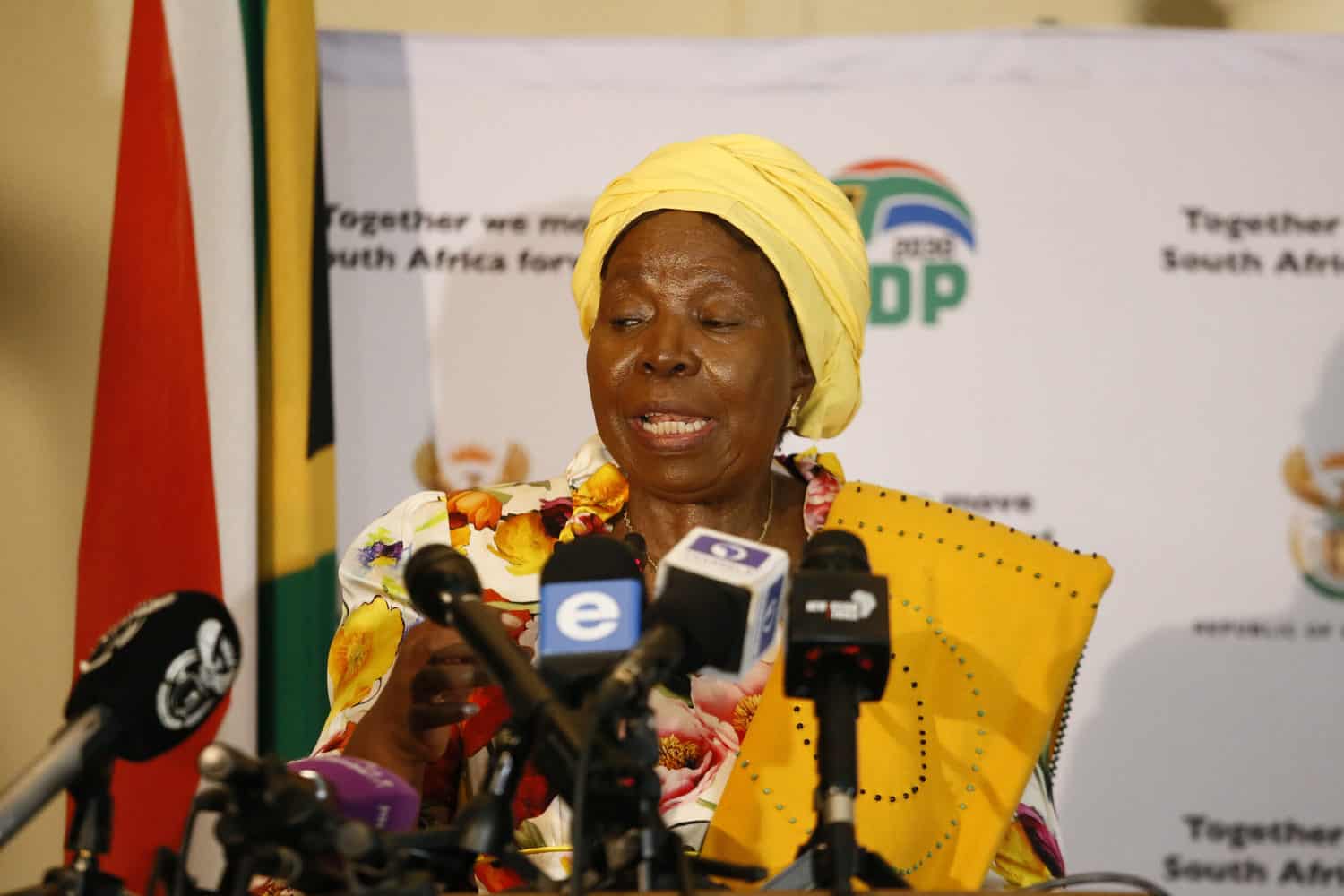The Bill will have to go through Parliament processes before it is sent to the President for approval.

Minister of Cooperative Governance and Traditional Affairs (Cogta), Dr Nkosazana Dlamini-Zuma. Picture: Gallo Images/Phill Magakoe
Parliament has confirmed the finalisation of the proposed amendments to the Disaster Management Act of 2002.
Briefing MPs during the National Assembly’s Programming Committee meeting on Thursday, Parliament unit manager Mongana Tau indicated that the process of drafting the Disaster Management Amendment Bill has been completed.
The Portfolio Committee on Cooperative Governance and Traditional Affairs (Cogta) finalised the Bill on Tuesday.
This after the committee held deliberations on the Bill in February and earlier this month following stakeholder engagements.
ALSO READ: SA health experts call for face masks and other Covid restrictions to be dropped
The Bill is now expected to go the National Assembly for a debate, after it was published in the government gazette last July for public comment.
After the debate, MPs in the National Assembly will vote on whether to pass the Bill or not, and proceed to the select committees for discussion.
It will then go to the National Council of Provinces (NCOP) for a debate and vote, before it is sent to President Cyril Ramaphosa for approval, according to Parliament’s website on “how laws are made“.
The proposed amendments to the Disaster Management Act could see some major changes to South Africa’s State of Disaster and Covid-19 lockdown regulations if it is signed into law by the president.
Here are the key changes:
- The national State of Disaster may be effective only “prospectively” for no more than 21 days from the date of declaration, unless the National Assembly resolves to extend it.
- The National Assembly may extend a national State of Disaster for no more than three months at a time
- The first extension of the national State of Disaster must be by a resolution adopted with a supporting vote of a majority of the members of the National Assembly.
- Any subsequent extension must be by a resolution adopted with a supporting vote of at least 60% of the members of the National Assembly.
- The resolution may only be adopted after a public debate in the National Assembly
- The Bill states that a Minister may terminate a national state of disaster by notice in the Government Gazette before it lapses.
- Only the National Assembly, a provincial legislature or a municipal council may resolve to extend a declaration of a national, provincial or local state of disaster respectively and for how long.
- While a copy of the notice declaring a national State of Disaster must be tabled by the minister, the National Assembly may disapprove of any regulations or directions made under such a declaration or may make recommendations to the minister pertaining to such regulations and directions.
State of Disaster
The finalisation of the Bill comes amid calls for government to end the national State of Disaster, with the current extension set to end next Tuesday, 15 March.
Government has repeatedly been criticised for extending the State of Disaster without parliamentary oversight.
As of 11 March, South Africa has been in lockdown for at least 714 days after the president first declared the State of Disaster in March 2020.
During the State of the Nation Address (Sona) last month, Ramaphosa confirmed that government intends to ends the State of Disaster.
However, this will only be done once the National Health Act regulations is finalised.
READ MORE: Do not end the state of disaster yet, says top doctor
In a letter sent to business group Sakeliga, Cogta Minister Nkosazana Dlamini-Zuma also insisted the State of Disaster would only be terminated when “adequate measures to deal with the effects of Covid-19 beyond the State of Disaster have been finalised”.
The Department of Health is currently amending the regulations so the country could move out of the State of Disaster.
According to Health Minister Dr Joe Phaahla, the new health regulations will ensure there were enough protective measures to replace the Disaster Management Act.
The regulations will cover surveillance and control of notifiable diseases, public health measures at points of entry, management of human remains and environmental health.
Download our app




